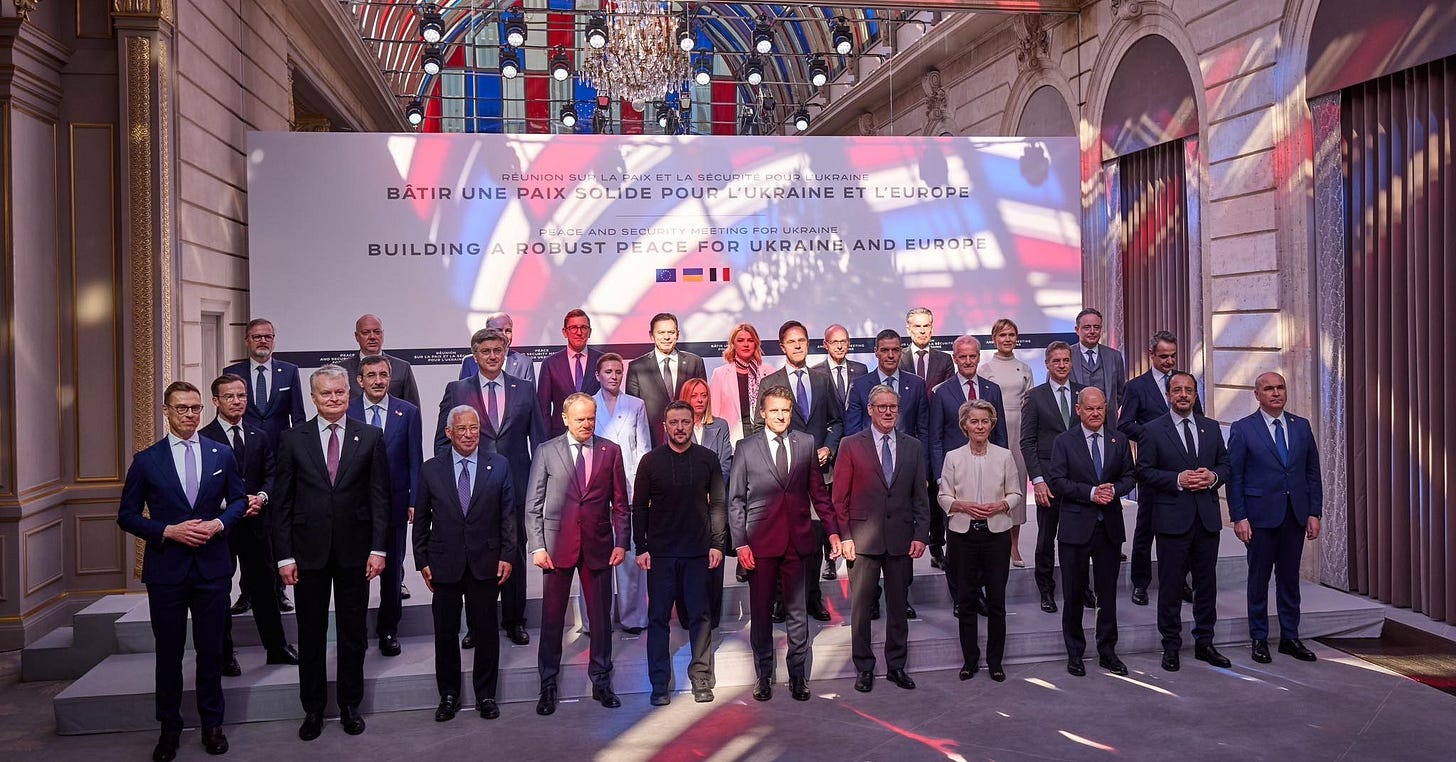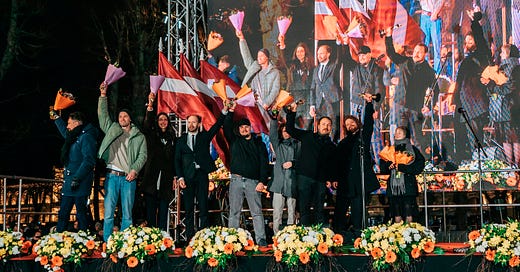
Dear Readers,
Director Gints Zilbalodis’ wordless film starring a black cat made history. Flow (Straume) became the first Latvian movie to be nominated for the Academy Awards. Flow took home the Oscar for Best Animated Feature Film and was also nominated for Best International Feature Film. Hundreds gathered to greet the production team at the Freedom Monument upon their return to Riga. Thanks to the film, black cats are getting a boost in adoption rates. Now, a look back at March in the Baltic states.
Security & Defense
Four American soldiers are confirmed dead after they went missing on March 25 during a military training exercise in Lithuania near the border with Belarus. The M88 Hercules armored recovery vehicle the soldiers were driving was discovered submerged in swampland. US and Lithuanian leaders pointed to the international search and recovery efforts as evidence of strong ties. “We cannot thank our Allies and fellow service members enough, especially the Lithuanians, who spared no resource in support of this mission,” said US Maj. Gen. Curtis Taylor.

As the US paused aid to Ukraine, European leaders drew together to show support. Baltic leaders were not part of the London Summit, held days after the Oval Office meeting between Volodymyr Zelensky and Trump administration officials. They were in attendance later in France for a meeting of a coalition of the willing vowing to stand with Ukraine. For Foreign Policy, Caroline de Gruyter writes that Europe should be led by the inspiring vision of the Nordic-Baltic 8.
The Baltic countries and Poland announced plans to withdraw from the Ottawa Convention banning anti-personnel landmines (APM), citing the fundamental deterioration of the security situation on the countries’ Russian and Belarusian borders. The Red Cross has questioned the decision, noting that APMs disproportionately harm civilians rather than enemy troops.
The European Commission released the White Paper for European Defence and the ReArm Europe Plan/Readiness 2030. It focuses on a surge in defense spending, closing capability gaps, increasing support to Ukraine, and strengthening Europe’s defense industry. In his remarks on the plan, Commissioner Andrius Kubilius noted that Russia could challenge NATO’s Article 5 before 2030 and warned Europeans must prepare for the likely decrease in US presence in Europe under President Donald Trump.
The foreign ministers of all three Baltic countries met with US Secretary of State Rubio on March 25. At the meeting, Rubio praised the countries for their defense spending and “reinforced” the US commitment to Baltic security. Earlier in the month, Rubio signed an order to continue Foreign Military Financing to the Baltic States.

Lithuanian Defense Minister Dovilė Šakalienė spoke with Fox News about how to negotiate with Russia and increase defense spending in Europe. Prince William joined UK troops in Estonia for a two-day visit, but there are concerns about the reduced presence of British forces in the country. And, a recent survey showed less than half of Latvians believe that NATO allies would fight for Latvia.
Domestic Issues
The Social Democratic Party (SDE) was ejected from Estonia’s governing coalition by its former partners, the Reform Party and Eesti 200. Prime Minister Kristen Michal (Reform) accused SDE of impeding work and proposing unrealistic initiatives, while SDE suggested low ratings for Reform and Eesti 200 figured into the decision.
The Estonian parliament voted to amend the constitution to prohibit non-EU citizens from voting in local elections. The move largely targets Russian and Belarusian citizens living in Estonia.
The Estonian parliament, the Riigikogu, voted to amend the constitution to prohibit non-EU citizens from voting in local elections. The move largely targets Russian and Belarusian citizens living in Estonia. “Grey passport” holders — those with undetermined citizenship — will still be able to vote in October elections but will be barred in the future. Some lawmakers fear the possibility of a protest vote, especially in areas with heavy concentrations of Russian speakers.
More than 30 people, mostly children, have contracted E. coli across several municipalities in Latvia. The source of the infection was initially linked to a caterer, but as the outbreak has widened, health authorities have continued their search.
Controversial Lithuanian MP Remigijus Žemaitaitis is facing a parliamentary probe after failing to disclose the nature of a trip and declare high-value first-class plane tickets. The catch? Žemaitaitis was tricked into believing he had been invited to a meeting with Elon Musk’s DOGE team.
The American Academy in Berlin awarded Kaja Kallas, Evika Siliņa, and Ingrida Šimonytė the Henry A. Kissinger Prize for their “outstanding contributions to the transatlantic relationship.” All three women briefly served concurrently as prime ministers of their respective countries; Siliņa is currently PM of Latvia.
Economy & Energy
Swedish grocery retailer ICA Gruppen will sell its Baltic subsidiary, Rimi, to Denmark’s Salling Group. There are 314 Rimi stories across the Baltic countries, and the chain has some 11,000 employees.
Analysts say Estonia’s inflation rate could reach upwards of 6% in 2025. Inflation in Estonia rose by 4.3% year-over-year in March, while the European Central Bank reported 3.6% for Latvia and Lithuania. These forecasts came ahead of the trade war launched by the Trump administration in April, which includes 20% tariffs on the EU.
Aitäh, paldies and ačiū,
Indra Ekmanis
Baltic Bulletin Editor
In Case You Missed It
Trump 2.0 and the Baltic States - Baltic Ways
When Demands for Peace Violate the Right to Self-Defense - Kaspars Ģērmanis




